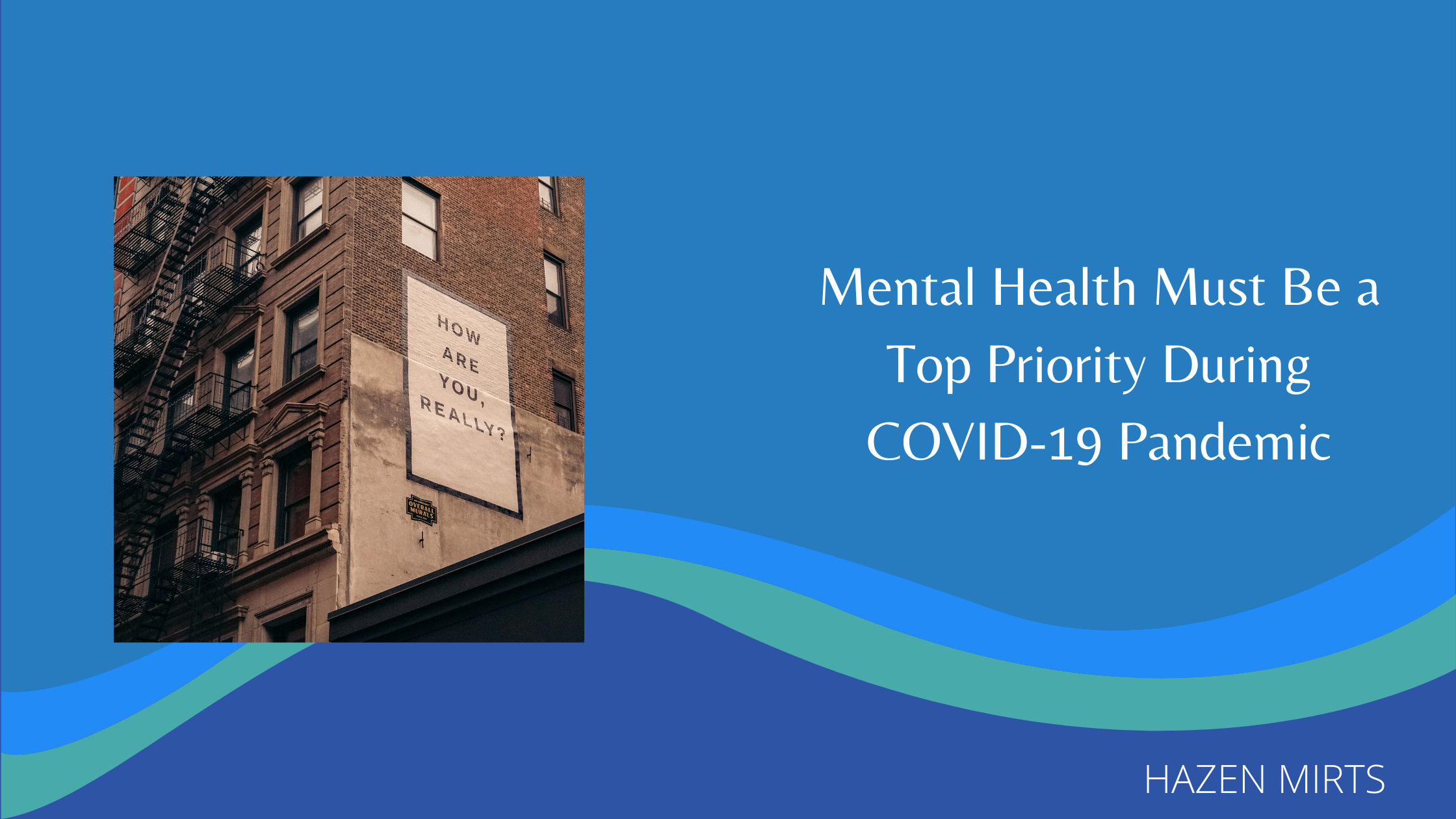
The pandemic of COVID-19 has changed people’s routines and paths. Moreover, it has also brought mental and emotional stress into the lives of many. Because human beings are social creatures, being isolated from others is detrimental to their mental states and physical health.
During the outbreak of a widespread infectious disease such as COVID-19, many people suffer from fear, anxiety, and depression. Several conditions may develop:
- Anxiety about contracting the disease (for oneself and loved ones) or the loss of loved ones from COVID
- Disruptions in sleep patterns
- Changes in eating habits
- Worsening of physical health
- Increased feelings of aggression
- Exacerbation of already existing mental health issues
- Increased use of substance abuse or tobacco
Physically, compounding stressors can lead to stomach upset, headaches, and high blood pressure, among other things. When anxiety or depression seems overwhelming, and these conditions compromise your mental and physical health, you should seek professional help.
Help in a Mental Health Crisis:
- Dial 911
- Dial the line for Disaster Distress Help (1-800-985-5990)Spanish-speakers can press #2 or text TalkWithUs (Hablanos for Spanish). Puerto Ricans can dial 1-787-339-2663
- Call the National Suicide Prevention Lifeline. English speakers can phone 1-800-273-TALK [8255], and Spanish speakers can call 1-888-628-9454.
- Dial the National Suicide Prevention Lifeline external icon: 1-800-273-TALK (8255) for English, 1-888-628-9454 for Spanish, or Lifeline Crisis Chat external icon.
- Contact the Veteran’s Crisis Line external icon: 1-800-273-TALK (8255) or Crisis Chat external icon or text: 8388255
Another issue to be aware of is that in times of such isolation, parents and children may feel acutely distressed, and it can lead to a great deal of tension in the home. Law enforcement officials have confirmed that they’ve seen a rise in domestic disputes and domestic violence cases due to stress brought on by the pandemic. A sense of powerlessness, fear, and hurt often boil over into anger and outbursts. If you or someone in your household is struggling with such feelings, help is available.
Help for Domestic Concerns:
- Dial the National Domestic Violence Hotline external icon: 1-800-799-7233 or text LOVEIS to 22522
- Call the National Child Abuse Hotline external icon: 1-800-4AChild (1-800-422-4453) or text 1-800-422-4453
- Dial theNational Sexual Assault Hotline external icon: 1-800-656-HOPE (4673) or Online Chat external icon
- Contact the Eldercare Locator external icon: 1-800-677-1116 TTY Instructions external icon
Help Getting Substance Abuse or Mental Health Treatment:
- The National Helpline of Substance Abuse and Mental Health Services Administration, or SAMHSA, has a confidential line (1-800-662-4357). There is also a Treatment Services Locator Website and an interactive map that displays the icons for Federally Qualified Health Centers.
- Behavior Treatment Locator Website is available: https://findtreatment.samhsa.gov/
- A Suicide Prevention line is available: 1-800-273-TALK (8255) for English, 1-888-628-9454 for Spanish, or Lifeline Crisis Chat external icon, and there is a Veterans’ Crisis line at this same number. (Veterans can text 8388255 if they choose.)
- A Child Abuse line is also available. The number is 1-800-4AChild (1-800-422-4453) or text 1-800-422-4453
Remember that it’s essential to take care of your mental health, especially during times of crisis. You can’t be your best self, and you can’t help others if you aren’t taking care of your own needs first.

